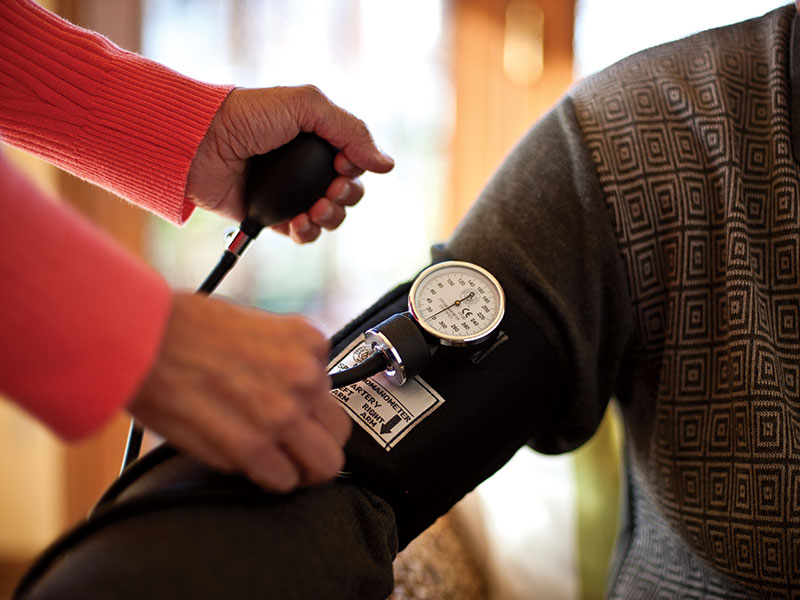From diet to exercise, there are many ways we can support our hearts.
However, when it comes to catching problems early, there’s no better resource than heart and vascular screenings.
The difference, explained
You may be asking yourself, “Aren’t heart and vascular screenings the same thing?”
While they are similar, they’re also very different, says Alexa Reynolds, lead exercise physiologist at the Sanford Center for Screening in Fargo, North Dakota.
Reynolds says a heart screening looks at the risk for coronary heart disease.
Schedule a screening:
“We would be looking at their blood pressure. We run a cholesterol check, we check their height and weight, and do an EKG (electrocardiogram) of their heart to look at rate and rhythm,” she said.
“Then, we use a tool called a Framingham score to assess their 10-year risk for developing heart disease. If our patients are found to be at a high risk, that means 6% or higher for the next 10 years, then the patient does a CT scan, which looks at the calcium buildup.”
A vascular screening, Reynolds explains, is essentially an ultrasound of a patient’s arteries in their neck, abdominal aorta, and legs.
“We have vascular techs looking for any risk of stroke, abdominal aortic aneurysm, also varicose veins and reflux,” she said.
Why they’re important
Reynolds says they’re different screenings, but equally important.
As a part of a heart screening, a cardiac calcium score is determined via a fast, painless and non-invasive CT scan. You can get a calcium score alone or as part of the heart screen. It can detect the presence, location and extent of calcified plaque in the coronary arteries — and therefore assess your risk of heart attack within the next two to five years.
“Your risk of heart attack and stroke kind of go hand in hand. In some cases, if you have calcium buildup in the heart, you most likely have plaque somewhere else in your body as well,” Reynolds said.
She says that as we grow older, calcium naturally builds in our arteries. This makes yearly screenings all the more important.
“We’re really encouraging all patients to still continue with their yearly physicals, visits, and maintenance. Screenings are included in that. We’re doing everything we can here to keep our patients safe. We want patients to know they are safe coming into our clinic, and they’re going to be safe at their appointments.”
Preventing problems in the first place
Reynolds says yearly screenings are the best way to catch problems early. She adds that prevention is the best medicine.
“Exercise is like your magic pill. It’s going to help with your blood pressure and cholesterol,” she said.
Along with exercise, Reynolds says the earlier you implement a heart-healthy diet, the better.
Learn more
- Your health matters: Don’t delay your care or screenings
- You can start preventing heart disease at any age
- Medications for high blood pressure during pregnancy
…
Posted In Fargo, Heart, Specialty Care, Vascular
